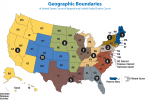What happens if you’re accused of copyright infringement? Or in the alternative, if someone infringes your work, what kind of defenses might the infringer come up with as an excuse to avoid paying you? Let’s take a look at some recent copyright defenses involving licensing that were used by alleged infringers.
Licensing
When you “license” your work, you are granting permission for someone else to use your work. Licenses can be incredibly detailed and restrictive; casual verbal agreements; or even simply an implied license (where the actions of the copyright owner lead the licensee to reasonably believe it had permission to use the work). As a content creator, it’s best, particularly when litigation occurs, to ensure you have a very clear, written license which articulates all of the terms of your agreement.
Use of the Work After Termination of a Valid License Might Not Amount to a Copyright Violation
Even when you have a carefully drafted license agreement, misunderstandings still may occur. A recent case out of the Second Circuit (Smith v. Barnesandnoble.com, — F.3d —-, 2016 WL 5845690 [2d Cir. Oct. 6, 2016]) involved the author of a puzzle book and Barnes and Noble. The author agreed (granted a license) to give away free samples of his book on the Barnes and Noble website in the hopes that people would download it, enjoy the puzzle samples, and eventually buy his book. During the two years his samples were posted, his book did not sell a single copy. He withdrew his license to distribute from Barnes and Noble, but his samples remained available on Barnes and Noble’s “digital locker” in the cloud to those who previously downloaded the samples for another 6 months. One person accessed the previously downloaded sample from his digital locker on the Barnes and Noble website after the author terminated the license.
Smith claimed that Barnes and Noble should have immediately prohibited access to the previously-downloaded samples as soon as he terminated his license. The Court disagreed, and held that the license between Smith and Barnes and Noble provided for distribution of samples, but was silent as to the rights of the customer who downloaded samples prior to the termination of the agreement. The court compared the issue to the granting of use rights to “paper samples.” Specifically, the court observed that the license did not distinguish between a customer’s use of paper samples versus digital samples. In other words, since a customer with a paper sample could “obviously keep it, reread it and make additional paper copies of it for noncommercial use, at will,” the license implied that the downloader/user of the digital sample could not simply loose use of the work upon license termination. The copyright infringement claim was dismissed, and the plaintiff’s other arguments were deemed “meritless.”
No Implied License to Assign Copyright to Others if there’s a “Non-Assignable” Clause in License
The Northern District of New York recently decided in the plaintiff’s favor on a motion made in a copyright infringement claim involving an architect and his drawings. The defendants used an “implied license” defense that failed. The plaintiff, an architectural firm, was hired to prepare designs and technical drawings for a real estate developer for use in a potential multi-family residential building. The developer later sold the building site that it had intended to build on to a second developer. The second developer used the architect’s plans. The architect alleged a copyright infringement claim against the second builder, claiming that it did not have permission to use the architect’s registered work (the original architectural design), and that it should have hired them to design new plans. The second developer claimed it had an implied license to use the plans for that property because the architect had admitted that it had granted a non-exclusive license to the first developer, so the non-exclusive license could be assigned to the second developer.
Unfortunately for the second developer, the license agreement signed by the first developer contained a “non-assignable” clause, which specifically stated that the architectural plans in question were non-assignable. As such, the second developer’s implied license defense failed. Accordingly, the copyright claims against the second developer survived the motion for summary judgment. We’ll keep an eye on the rest of this case as it unfolds. (Mackenzie Architects, PC v. VLG Real Estates Developers, 2016 WL 4703736 [N.D.N.Y. Sept. 8, 2016])
Leave a comment below.







